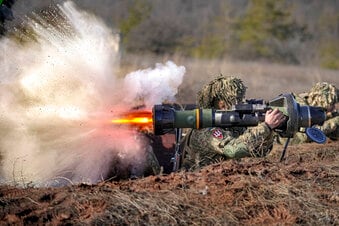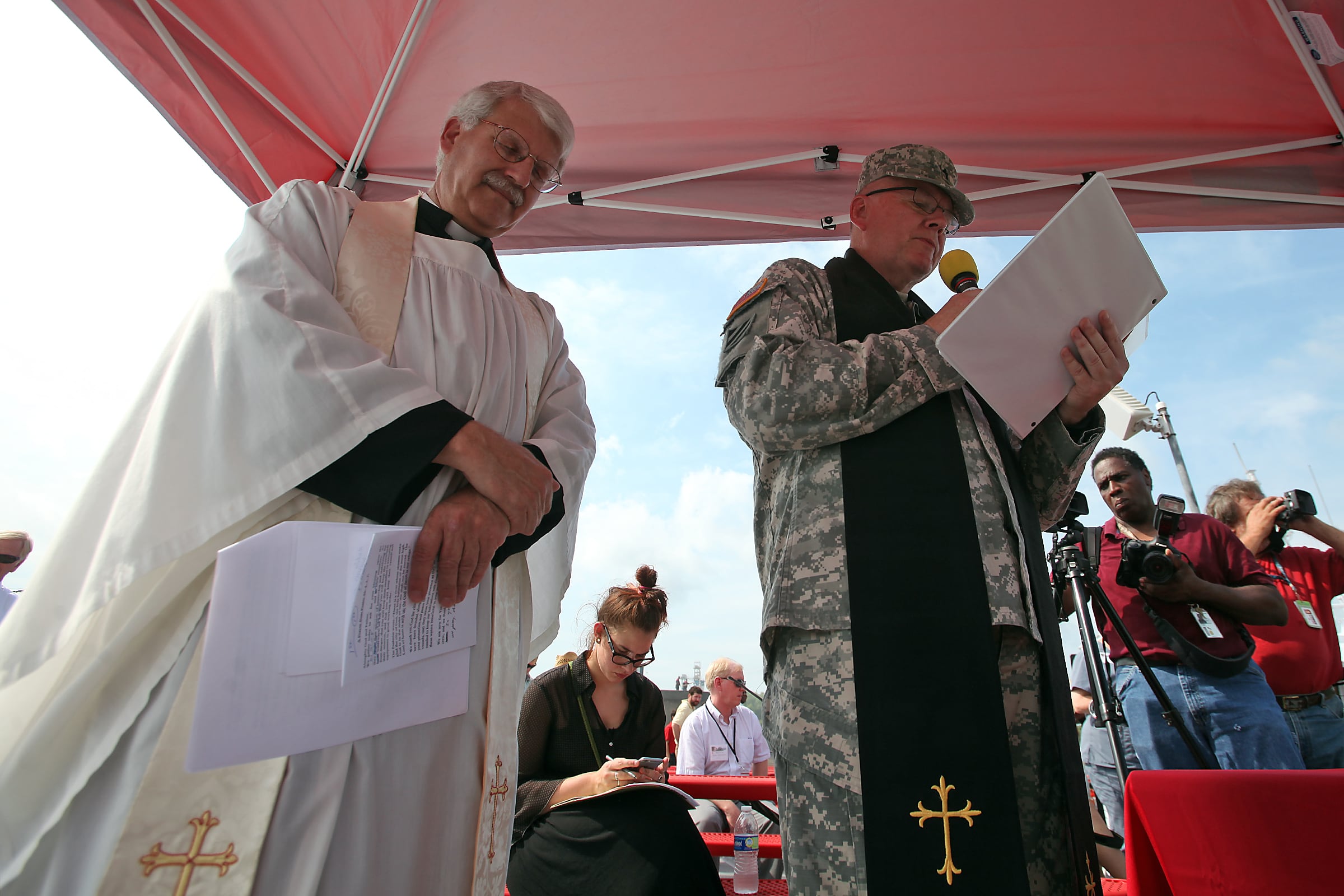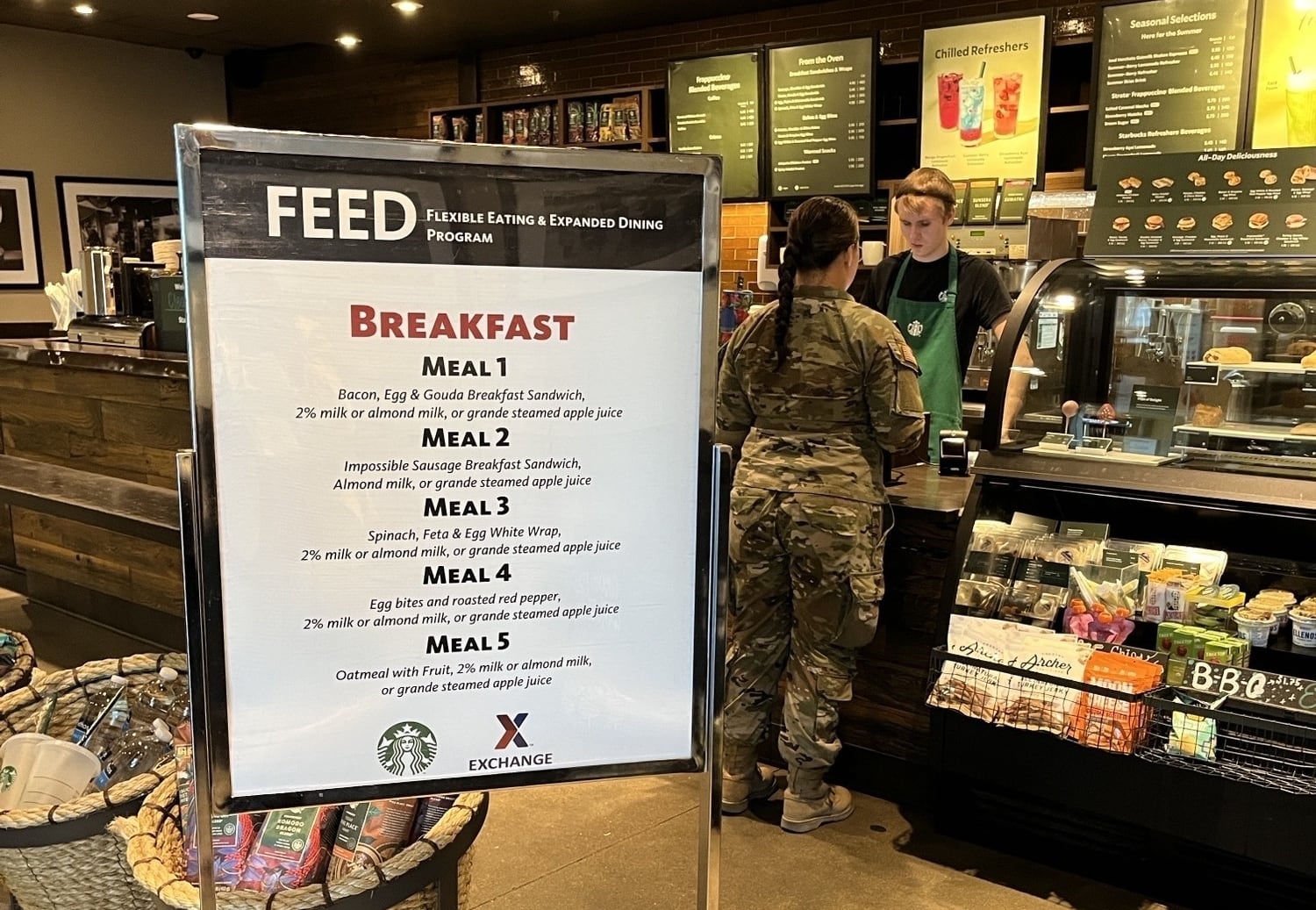Russian President Vladimir Putin ordered forces Monday to “maintain peace” in separatist regions of eastern Ukraine in a further escalation of tensions that followed the Kremlin’s recognition of the areas’ independence despite warnings of sanctions and international condemnation.
In response to his earlier move recognizing separatist republics of Luhansk and Donestk, a senior Biden administration official said that the White House is assessing those moves and will determine what additional actions, likely in the form of sanctions, it will take, in the coming hours.
“We will continue to consult with our allies and partners about both diplomatic solutions and the consequences we will impose on Russia, should it further invade Ukraine,” said a senior administration official during a Monday evening press call.
RELATED
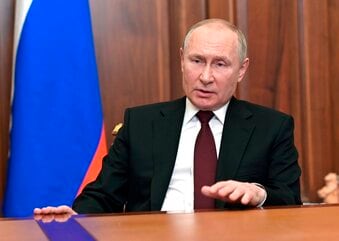
There are already more than 150,000 Russian troops surrounding Ukraine. The official pointed out that Russian troops have repeatedly entered the region since Russia invaded in 2014, during which time more than 14,000 people have been killed in fighting. But he declined to set a red line on what further incursions would prompt an additional U.S. response.
“Russian troops moving into Donbas would not itself be a new step,” he said. “Russia has had forces in the Donbas region for the past eight years.”
“Just in the last hour, we’ve seen Russia or troops to deploy into the DPR and LPR for so called peacekeeping functions,” said the senior administration official, who declined to confirm reports by the Russian Interfax news agency and social media posts showing additional Russian forces entering the Donbas.
A Ukraine military official told Military Times Monday night that a new wave of Russian troops had entered the Donbas in the wake of Putin’s order.
Foot stomping Biden’s stance on U.S. troops in Ukraine, the senior administration official said there will be no American forces there, even if U.S. citizens are included in any roundup of perceived enemies by Russian forces, as described in a letter to the United Nations.
“We have been warning individuals and groups we think could be targeted based on our understanding and our knowledge of Russian plans to try to enable them to protect themselves or move to places where they might be safer,” said the official, “but I have nothing to add to what the president already said, which is that he had no intention of sending American forces to fight inside Ukraine.”
The Kremlin decree, spelled out in an order signed by Putin, left unclear when, or even whether, troops would enter Ukraine. But it further fueled fears of an imminent invasion and underscored the steep challenges the U.S. and Western nations face in staving off a military conflict they have portrayed as near-inevitable.
In recent weeks, Defense Secretary Lloyd Austin ordered 4,700 members of the 82nd Airborne Division to deploy to Poland as a show of support to NATO allies. Another 300 soldiers from the XVIII Airborne Corps made their way to Germany, while 1,000 soldiers from the Germany-based 2nd Cavalry Regiment went to Romania. There are also more than 20 U.S. warships in theater and numerous Air Force piloted and unpiloted aircraft flying over and around Ukraine.

Putin blames US, NATO
The Kremlin’s announcement came just hours after Putin, in a rambling, fact-bending discourse on European history, recognized the independence of the eastern separatist regions, paving the way to provide them military support and antagonizing Western leaders who regard such a move as an unjust breach of world order.
The developments came amid a spike in skirmishes in the eastern regions that Western powers believe Russia could use as a pretext for an attack on the western-looking democracy that has defied Moscow’s attempts to pull it back into its orbit.
Putin justified his decision in a far-reaching, pre-recorded speech blaming NATO for the current crisis and calling the U.S.-led alliance an existential threat to Russia. Sweeping through more than a century of history, he painted today’s Ukraine as a modern construct that is inextricably linked to Russia. He charged that Ukraine had inherited Russia’s historic lands and after the Soviet collapse was used by the West to contain Russia.
“I consider it necessary to take a long-overdue decision: To immediately recognize the independence and sovereignty of Donetsk People’s Republic and Luhansk People’s Republic,” Putin said.
Afterward he signed decrees recognizing the Donetsk and Luhansk regions’ independence, eight years after fighting erupted between Russia-backed separatists and Ukrainian forces, and called on lawmakers to approve measures paving the way for military support.
Until now, Ukraine and the West have accused Russia of supporting the separatists, but Moscow has denied that, saying that Russians who fought there were volunteers.
With an estimated 150,000 Russian troops massed on three sides of Ukraine, the U.S. has warned that Moscow has already decided to invade. Still, Biden and Putin tentatively agreed to a meeting brokered by French President Emmanuel Macron in a last-ditch effort to avoid war.
If Russia moves in, the meeting will be off, but the prospect of a face-to-face summit resuscitated hopes in diplomacy to prevent a conflict that could cause massive casualties and huge economic damage across Europe, which is heavily dependent on Russian energy.
Russia says it wants Western guarantees that NATO won’t allow Ukraine and other former Soviet countries to join as members — and Putin said Monday that a simple moratorium on Ukraine’s accession wouldn’t be enough. Moscow has also demanded the alliance halt weapons deployments to Ukraine and roll back its forces from Eastern Europe — demands flatly rejected by the West.
Macron’s office said both leaders had “accepted the principle of such a summit,” to be followed by a broader meeting that would include other “relevant stakeholders to discuss security and strategic stability in Europe.”
U.S. national security adviser Jake Sullivan, meanwhile, said the administration has always been ready to talk to avert a war — but was also prepared to respond to any attack.
Putin’s announcement shattered a 2015 peace deal signed in Minsk requiring Ukrainian authorities to offer broad self-rule to the rebel regions, a major diplomatic coup for Moscow.
That deal was resented by many in Ukraine who saw it as a capitulation, a blow to the country’s integrity and a betrayal of national interests. Putin and other officials argued Monday that Ukrainian authorities have shown no appetite for implementing it.
Call to war
“This wasn’t a speech just about Russian security,” said the senior administration official. “It was an attack on the very idea of a sovereign and independent Ukraine. He made clear the views Ukraine historically as part of Russia, and he made a number of false claims about Ukraine... that seems designed to excuse possible military action. This was a speech to the Russian people to justify war.”
Biden Monday evening issued an Executive Order prohibiting new investment, trade, and financing” in the regions, or on anyone “determined to operate in those areas of Ukraine.” Those measures are separate from tougher sanctions the U.S. is preparing in case of a Russian invasion.
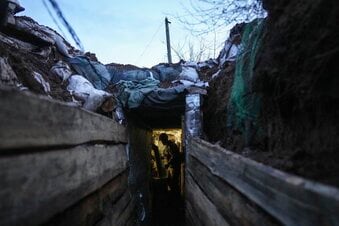
The U.N. Security Council will hold an emergency meeting Monday night after Russian President Vladimir Putin recognized the independence of separatist regions in eastern Ukraine and ordered Russian troops to “maintain the peace” there.
The meeting comes at the request of Ukraine, the United States and six other countries. Russia, which currently holds the rotating council presidency, has scheduled it for 9 p.m. New York time. Yet undetermined is whether the meeting will be open or closed.
Ukrainian U.N. Ambassador Sergiy Kyslytsya says in a letter to his Russian counterpart that Kyiv is requesting the urgent meeting because Putin’s actions violate Ukraine’s sovereignty and territorial integrity, the U.N. Charter and a 2014 U.N. General Assembly resolution.
It is virtually certain the Security Council will not take any action or issue any statement because Russia has veto power.
The Ukraine military official call for direct military support from foreign nations to help in a fight against Russia.
“We are in situation when Ukrainians badly need foreign troops presence in Ukraine to insure space for freedom and democracy,” he said. With “Russians in Donetsk and Luhansk. western power should be here and represent good will and moral support.”
Karmanau reported from Kyiv, Ukraine, and Cook from Brussels. Lori Hinnant in Kyiv; Angela Charlton in Paris; Zeke Miller and Aamer Madhani in Munich, Germany; Geir Moulson in Berlin; and Ellen Knickmeyer, Robert Burns, Matthew Lee and Darlene Superville in Washington contributed to this report.
Howard Altman is an award-winning editor and reporter who was previously the military reporter for the Tampa Bay Times and before that the Tampa Tribune, where he covered USCENTCOM, USSOCOM and SOF writ large among many other topics.
